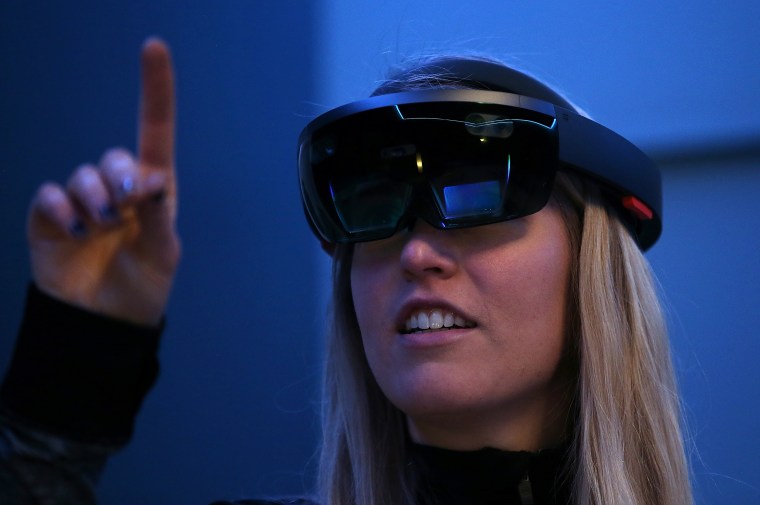The jury is still out on whether smart glasses are a fashion do or don't, but tech companies are already running wild with ideas for how smart spectacles can be used in the future.
Even Apple is reportedly tinkering with the idea of digital glasses, according to Bloomberg — citing unnamed sources. Apple declined to comment.

Some variations of glasses released over the years have been called dorky (ahem, see the first edition of Google Glass) while others have been heralded as tools to revolutionize the way we work and play, like Microsoft's HoloLens.
Related: Snap Is Using Vending Machines for Its New Camera Glasses
But with so many companies investing in smart eye-wear, is this something that will ever have mass appeal?
Patrick Moorhead, principal analyst at Moor Insights & Strategy told NBC News, that it will take a while "to get it right" but he expects smart glasses to enter the mainstream in ten to 15 years.
"There will be interim products that get us there and will be desired by a small sub-segment of people. I’ll argue that is how PCs started. For some people they replaced typewriters and adding machines," he said. "But ten to 15 years in the future, we will all have some kind of way to have an augmented reality experience."
According to a report from Ericsson, one-third of smartphone users believe wearables will be so important in the future, they expect to have at least five devices beyond the year 2020.
Perhaps the most notable misfire in smart eye-wear was Google Glass. The cyborg-like design that earned the early adopter techies who wore Glass a new nickname: "Glassholes."
It was also plagued by privacy concerns since users could record video in public, leading to the eyewear being banned in some restaurants, theaters and strip clubs. Google ended its explorer program in January 2015, noting the product was in its infancy and that the team had more work to do on the next iteration.
"Google Glass was an absolute train wreck failure for some really obvious reasons," Moorhead said. "We are a long way from augmented reality being pervasive, but there will be some areas people will jump on board and there are always those pioneers that do it first."
Moorhead said he's not surprised Apple may be working on a pair of smart glasses, and he thinks they have a great shot at nailing the user experience.
"While Apple may not be the first [to come out with smart glasses], they also have a different bar of acceptability," he said. They don’t beta test their customers. They want to make sure they nail the experience."
While it's just a report now, Moorhead said there's something worth remembering about the world's most valuable company.
"Apple is working on everything all the time," he said.